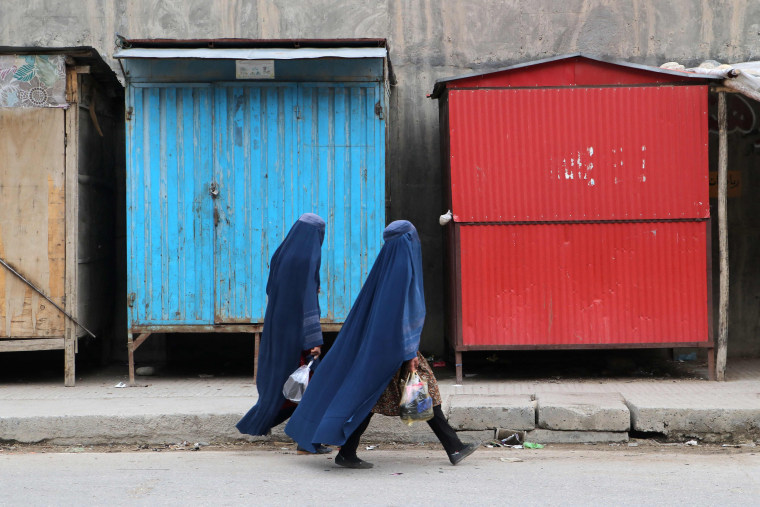The top U.S. diplomat to Afghanistan has apologized for suggesting that Afghan women might find inspiration for their struggle against Taliban oppression in the #BlackGirlMagic social media movement.
“Sometimes, our best intentions go awry because we haven’t listened enough or don’t truly understand others’ lived experience,” Karen Decker, the chargé d’affaires of the U.S. mission to Afghanistan, said Thursday on Twitter. “My efforts to celebrate courageous African Americans this month fall in that category. I apologize to any and all who I may have offended or hurt.”
Decker had raised the ire of a number of high-profile social media users with her tweet this week, which many interpreted as minimizing the experience of Afghan women who have seen their freedoms rolled back since the Taliban swept to power again in 2021.
Female students have been banned from universities as well as middle and high schools, with women restricted from most jobs, banned from parks and gyms, and forced to cover their faces in public under strict rules.
“Are Afghans familiar with #BlackGirlMagic and the movement it inspired?” Decker wrote Wednesday in the now-deleted tweet, which was shared widely online by activists, academics and journalists. “Do Afghan girls need a similar movement? What about Afghan women? Teach me, ready to learn,” Decker continued, tagging the recording artists Beyoncé, Lizzo and the Oscar-winning actress Regina King.
The comments sparked swift backlash online.
“I don’t think many girls in Afghanistan are familiar with #BlackGirlMagic but they definitely [have] made day and night sleep difficult for Taliban,” wrote Fowzia Koofi, who was elected to the Afghan National Assembly and later became the first female deputy speaker of Parliament. She left the country for Britain in September 2021 during the Taliban takeover. “They need to be lifted and their voices to be amplified, and Taliban have expedited arresting them,” Koofi added.
Sen. Ted Cruz, R-Texas, weighed into the online discussion. “And they said the adults were back in charge … ” he tweeted Thursday.

Decker’s tweet was one of a handful in which she referred to both Black History Month and the plight of Afghan women in Taliban-ruled Afghanistan.
She also faced mild rebuke from within the Biden administration, which has been criticized for its withdrawal from Afghanistan and subsequent approach to the issue.
State Department spokesman Ned Price said at a briefing Wednesday that the tweets were drafted by Decker alone and that they were not cleared with the department.
“I will say that there’s sentiments in her tweet thread that one can appreciate,” Price said. “I think the messaging in this context is rather inappropriate and ineffective, and it is not messaging that we would issue from here.”
For some, Thursday's apology was too little, too late.
“Protip: Stop tweeting and process SIVs,” tweeted Simone Ledeen, a senior fellow at the Krach Institute for Tech Diplomacy at Purdue, referring to special immigrant visas that allow Afghans who assisted the U.S. during the Afghanistan war to leave the country.
Afghanistan’s economy is now on the brink of collapse, with millions unemployed and close to starvation — a dire humanitarian crisis exacerbated by a bitter winter.
